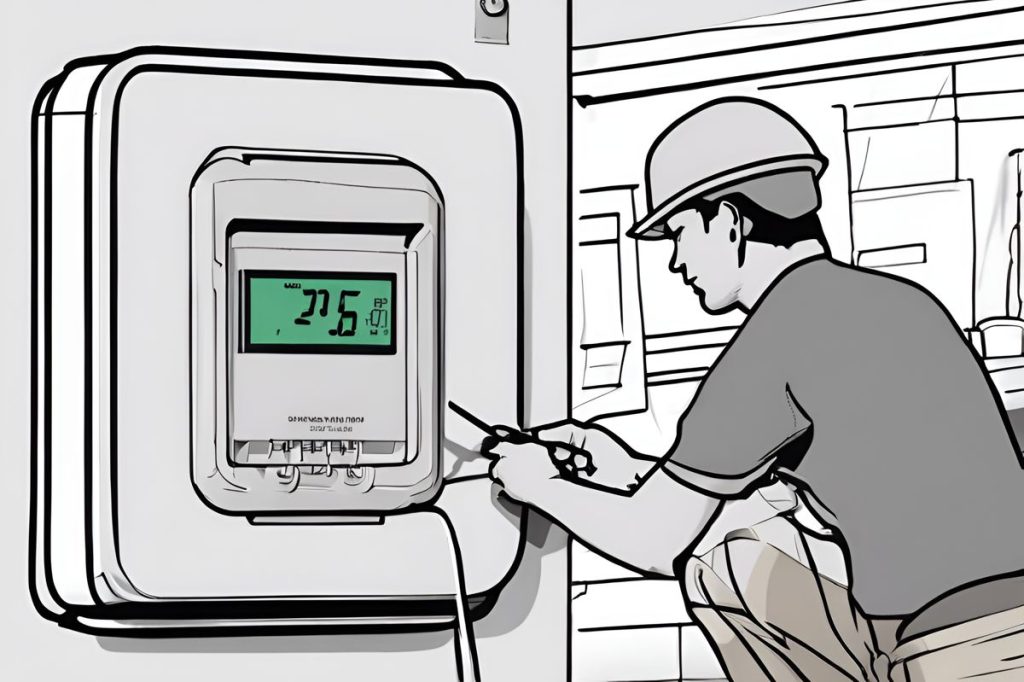The Energy Ministry in Cyprus is exploring smart meter alternatives to manage renewable energy sources efficiently, with plans to classify them as “critical infrastructure” to bypass public tender issues. Despite legal challenges and delays, they aim to meet EU deadlines for 400,000 smart meters by March 2024.
What are the alternatives for smart meter procurement in Cyprus’s energy management?
Cyprus’s Energy Ministry is exploring alternatives for smart meter procurement, such as classifying them as “critical infrastructure” to bypass public tender issues. This is vital for managing renewable energy sources and meeting EU deadlines for 400,000 smart meters by March 2024, despite legal challenges and delays.
The Quest for Reliable Smart Meters
The Energy Ministry, under the guidance of Energy Minister George Papanastasiou, is actively seeking alternative routes to acquire smart meters. These devices are not just fancy gadgets; they are fundamental in the seamless management of renewable energy sources. It’s become increasingly clear that a stable and efficient energy framework heavily relies on these smart devices to monitor and adapt the distribution of electricity.
In light of recent setbacks, such as the administrative court’s barring of the Cyta tender, the EAC is compelled to explore different paths. They are considering an approach that may bypass the public tender process entirely. Papanastasiou, after a session with the House commerce committee, hinted at a plan to designate smart meters as “critical infrastructure,” which could be a game-changer in expediting their procurement and deployment.
Delays and Legal Challenges
The quest for smart metering has been marred by delays, with two years of faltering progress. The Supreme Court has become a player in this saga, as EAC is appealing against the court’s prior decision. Meanwhile, the European Union’s deadlines loom. The EAC has been in talks with the General Directorate for Development for an extension due to these unforeseen legal hurdles.
House energy committee chair Kyriakos Hadjiyiannis expressed his concerns over the delays. He emphasized the urgency of finding solutions, especially given the risk of losing vital EU funds amounting to €30 million, dedicated to this very purpose.
Commitments and Deadlines
The Republic has made its commitment to the EU clear: to finalize the deal for 400,000 smart meters by March 2024. According to the schedule, 50,000 meters should be in the EAC’s possession by September, with 15,000 installations completed. By June 2026, all meters are expected to be received, and 250,000 installations should be underway.
The challenge is not just in meeting these numbers but doing so in a timely manner that doesn’t compromise the quality and reliability of installations. EAC spokeswoman Christina Papadopoulou has previously mentioned that the installation would begin after a one-year survey period, which includes a pilot program, highlighting the thorough approach taken to ensure the system’s efficacy.
The Trial Competitive Electricity Market
Aside from smart meters, Cyprus is also on the cusp of a significant shift in its electricity market, slated for a trial of competitive operation by year-end. This development, as brought forward by Papanastasiou, would demand coordinated efforts from multiple facets of the energy sector, including the Cyprus Energy Regulatory Authority and the Transmission System Operator.
While the minister expressed optimism about a 70 percent chance of achieving this goal, Hadjiyiannis raised doubts about the truthfulness of these claims. He stressed the importance of transparency and realistic expectations when communicating such critical updates to the public, especially to the end-users who are directly impacted by these developments.
In conclusion, these are transformative times for Cyprus’s energy sector, with both challenges and opportunities lying ahead. The successful implementation of smart meters and the opening of a competitive electricity market are pivotal elements in modernizing the grid, enhancing sustainability, and providing consumers with more control and better service. As the energy landscape evolves, it is hoped that the solutions found will reflect the innovation and resilience needed to propel the island into a new era of energy efficiency and reliability.
What are the alternatives for smart meter procurement in Cyprus’s energy management?
Cyprus’s Energy Ministry is exploring alternatives for smart meter procurement, such as classifying them as “critical infrastructure” to bypass public tender issues. This is vital for managing renewable energy sources and meeting EU deadlines for 400,000 smart meters by March 2024, despite legal challenges and delays.
What challenges has Cyprus faced in the implementation of smart meters?
Cyprus has faced delays and legal challenges in the implementation of smart meters, with setbacks including administrative court rulings and appeals. Despite these challenges, the Energy Ministry is committed to meeting EU deadlines for smart meter deployment.
What commitments has Cyprus made regarding smart meter installation?
Cyprus has committed to installing 400,000 smart meters by March 2024, with specific milestones for meter acquisition and installation. The process includes a survey period and pilot program to ensure the quality and reliability of installations.
What other developments are happening in Cyprus’s energy sector aside from smart meter implementation?
Cyprus is also preparing for a trial of competitive operation in its electricity market by the end of the year. This initiative involves coordination with various entities in the energy sector and aims to provide consumers with more control and better service.

